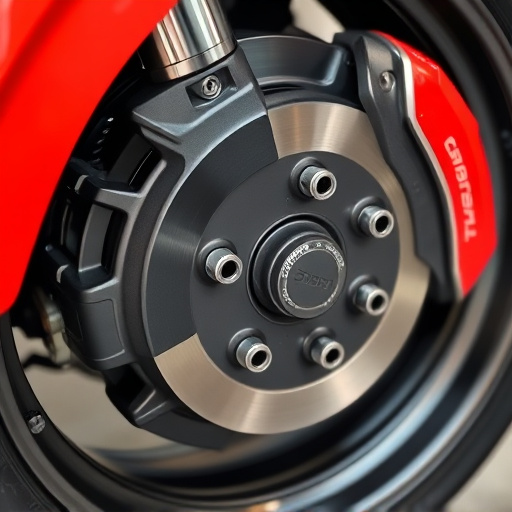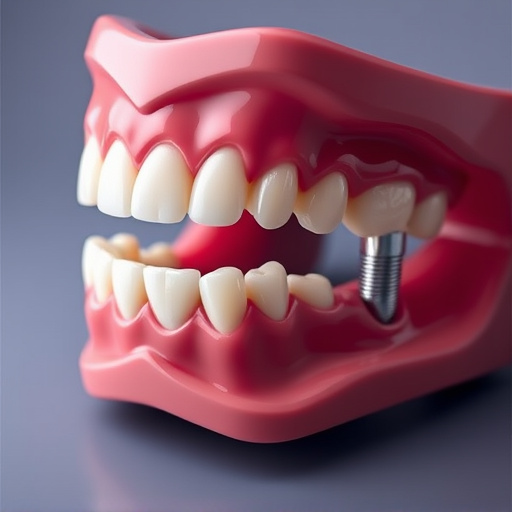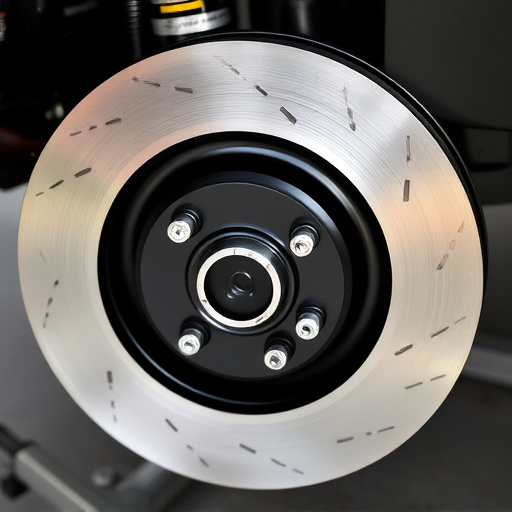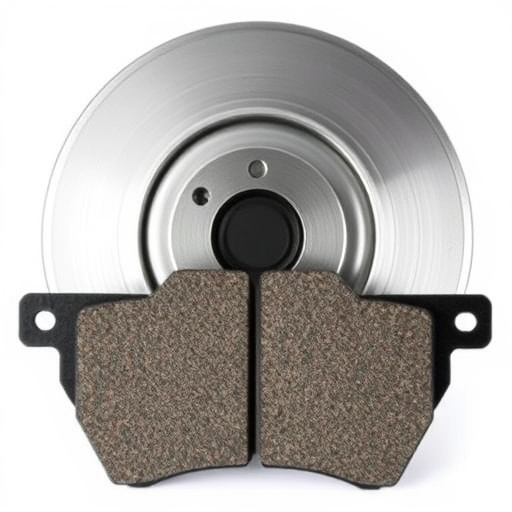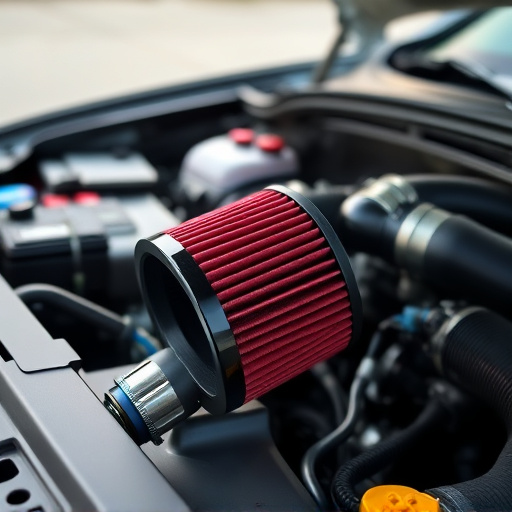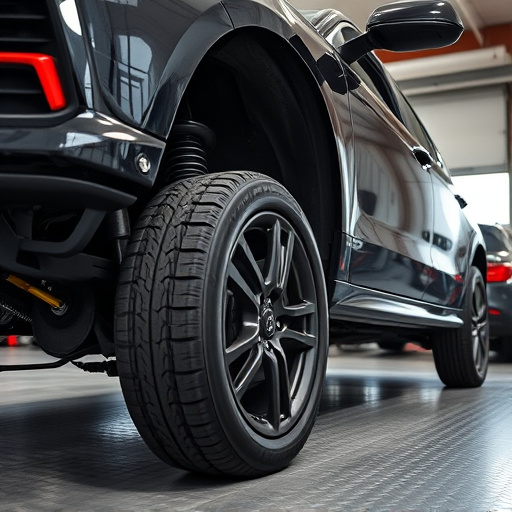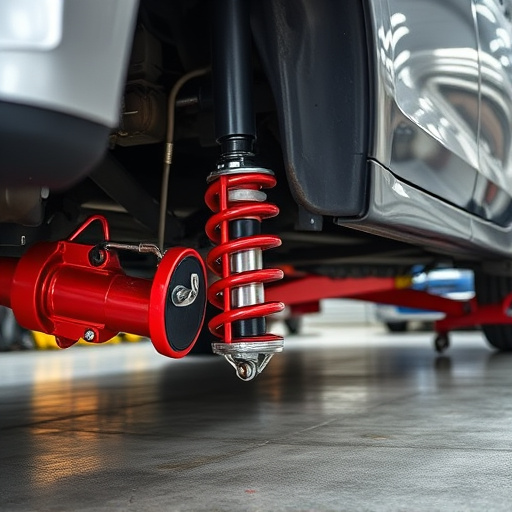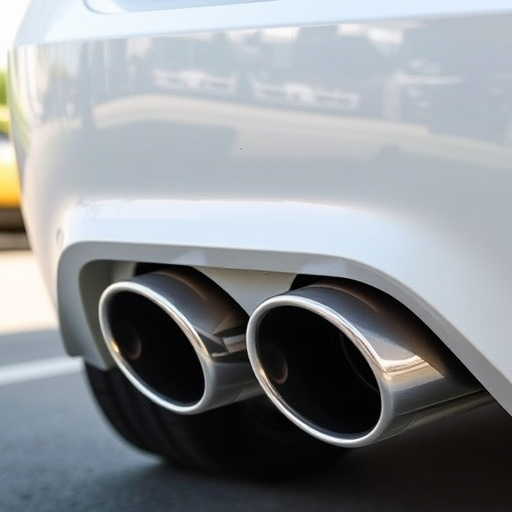The engine intake system is a crucial component for vehicle performance, responsible for delivering a precise air-fuel mixture to the engine. It starts with air filter kits removing contaminants and uses tubes, ducts, and components like manifolds, superchargers, or turbochargers to optimize air flow. Upgrading this system improves throttle response and dynamics, while regular maintenance prevents issues. High-performance upgrades require professional guidance for optimal results.
New car owners often wonder about the inner workings of their vehicle’s engine. One key component is the engine intake system, which plays a vital role in performance and efficiency. This article demystifies this complex system, explaining its functionality and importance. We’ll delve into how it draws air and fuel into the engine, highlighting common issues to watch out for. Understanding your car’s engine intake system is essential for any new owner aiming to maintain optimal vehicle health.
- What is the Engine Intake System?
- How Does the Intake System Work?
- Importance and Common Issues in Engine Intake Systems
What is the Engine Intake System?
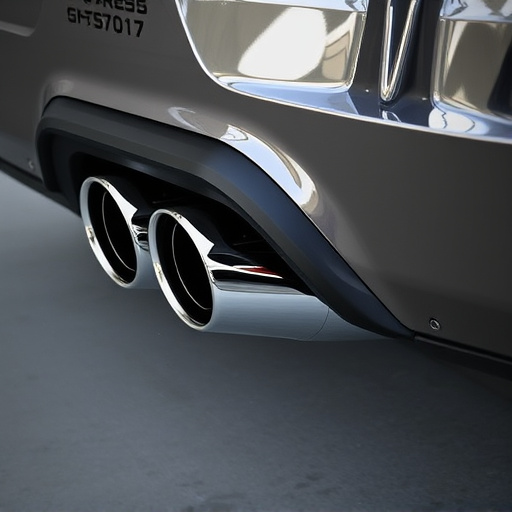
The engine intake system is a crucial component in any vehicle’s engine, responsible for delivering a vital mix of air and fuel to the engine for efficient combustion. It starts with the air filter kits that ensure clean and filtered air enters the engine, removing contaminants that could harm the internal components. This pre-filtered air then flows through an intricate network of tubes and ducts into the engine cylinder, where it mixes with gasoline or diesel fuel, depending on the type of engine.
The intake system’s design plays a significant role in optimizing engine performance. It includes various components like air intakes, manifolds, and sometimes superchargers or turbochargers (in high-performance exhaust systems) to compress the air, further enhancing the engine’s power output. Upgrading this system with performance exhaust can lead to improved throttle response and overall vehicle dynamics, making it a popular modification among car enthusiasts.
How Does the Intake System Work?
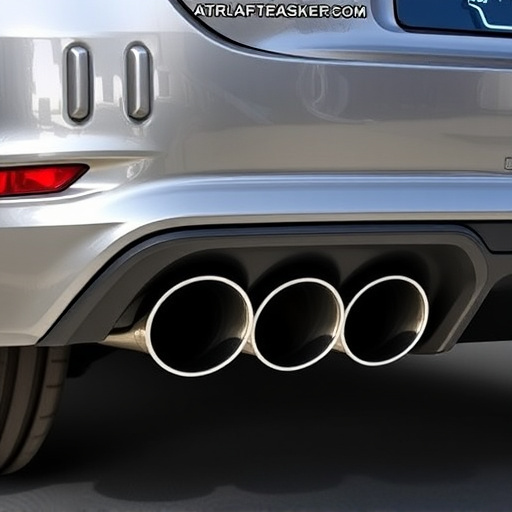
The engine intake system is a crucial component that facilitates the process of drawing in and delivering air/fuel mixture to the engine. It starts with the air intake, where ambient air enters the vehicle through an air filter housed within the system. This initial step ensures that only clean, untainted air reaches the engine, preventing debris or contaminants from causing damage. The filtered air then travels through a series of tubes and components, including the mass air flow (MAF) sensor, which measures the amount of air entering the engine.
This measured air is then combined with fuel from the fuel injector, creating the perfect balance for optimal combustion. The mixture passes through the cylinder head, where it’s ignited by the spark plugs, generating power and driving the vehicle’s wheels via the transmission and exhaust system. Efficient engine intake systems, often aided by high-performance parts like muffler tips and advanced air intake systems, contribute to better fuel economy and overall engine performance.
Importance and Common Issues in Engine Intake Systems
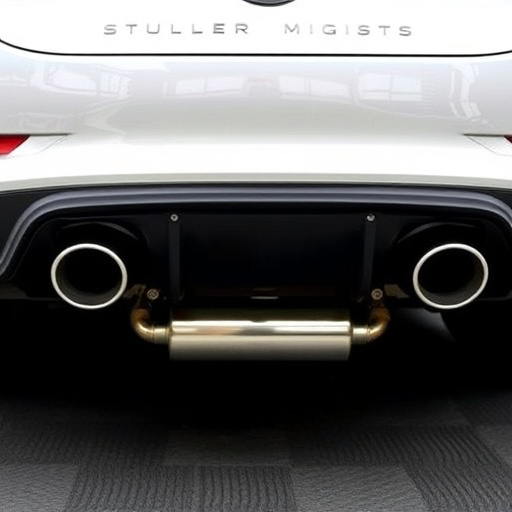
The engine intake system is a vital component for any vehicle’s performance and efficiency. It acts as the gateway for air and fuel into the engine, allowing for optimal combustion and powering the car’s various systems. A well-functioning intake system ensures smooth operation, enhances horsepower, and contributes to better fuel economy. However, like any complex mechanism, it is prone to issues over time. Common problems include leaks in the air filters or gaskets, which can reduce engine power and increase fuel consumption. Clogged intake pipes or dirty air filters are also frequent culprits, hindering airflow and causing the engine to work harder than necessary.
Regular maintenance, such as replacing air filters at recommended intervals, is crucial to prevent these issues. Upgrading components like exhaust mufflers, coilover kits, or suspension kits can further optimize the intake system’s performance, but it’s essential to consult a professional for guidance tailored to one’s vehicle.
Understanding your car’s engine intake system is key for every new owner. This vital component plays a crucial role in optimizing engine performance, ensuring efficient combustion, and maximizing fuel delivery. By grasping its function and common issues, you’re empowered to maintain and protect your vehicle’s overall health. Remember, a well-maintained intake system contributes to smoother driving, improved mileage, and reduced risk of costly repairs.

